“Vietnamese people are not rich, but they spend a lot of money on their children’s education” – Uzbek teacher tells about Vietnam’s public education system
“Only elementary grades are taught free of charge. 85-90% of young people know English”. Dostonbek Siddikov, who can speak 12 languages, has been teaching English to the Vietnamese people for 4 years. In an interview with Kun.uz, he shared interesting information about himself and Vietnam.
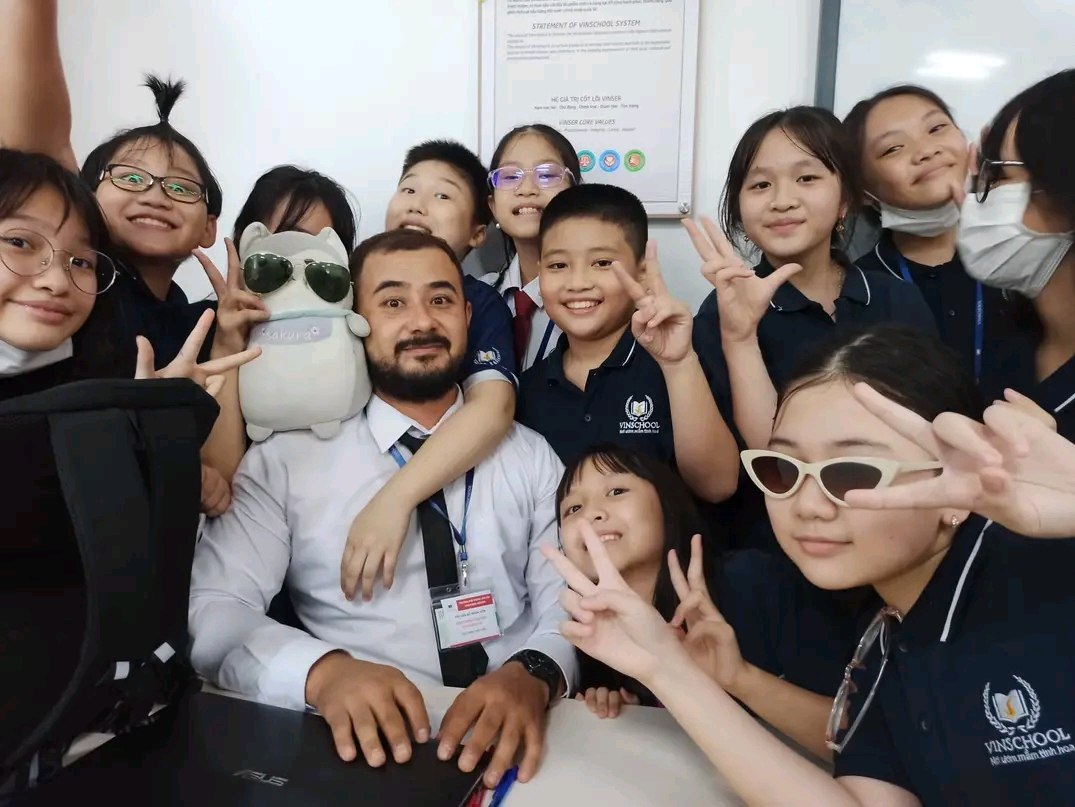
Photo: Kun.uz
Recently, a 32-year-old Uzbek man was recognized as “Teacher of the year” in Vietnam. It is clear that it was not easy for an Uzbek teacher to go to another country and achieve this result. Growing up in a family of teachers in the Rishton district of Fergana, Dostonbek Siddikov had many adventures before going to Vietnam. He has his own story about it.
“They paid for my education even if we did not eat meat at home”
- I am a child of an ordinary family. My parents, my grandmother worked in an educational institution. My father is my first teacher. I was able to read and write in the Cyrillic alphabet when I was 3 years old. My mother was strict. I remember the beatings I received when I made a mistake. My grandmother retired from the directorship of one of the first lyceums she opened, and my mother is a librarian. My father worked at a school, then switched to television journalism.
The school was far from my house and I had to ride a bicycle for a 10-kilometer distance. Even if we ate meatless food at home, they would definitely send money to my school fees and notebook. I had financially difficult period while I was studying. My mother’s monthly salary was transferred for paying my tuition fee. My grandmother always used to advise that if you are in trouble now, it will be better tomorrow. Even when I opened Paynet and tried to help my family, I was reprimanded by my grandmother: “If your first job is so easy, tomorrow you won’t be able to work in a tougher situation”.
Beginning of an interest in teaching students of other nations
In 2017, I had to go to Russia, where I worked in a language center. There were Uzbeks, Kyrgyz people, Tajiks, and Russians in my group. And that meant I only had to speak English. I noticed a lot of growth in myself in 3 months. Then I went to China because a couple of my friends motivated me. There were problems with the visa in China, I went to Vietnam, Malaysia, Thailand, Cambodia to renew my visa, and I worked a little while on the way. In the meantime, I learned other languages. In the end, the conditions in Vietnam were favorable and I stayed here. I didn’t like the education system at first, especially I couldn’t stand the questions and answers with the parents. Later I found out that this is their culture.
In Vietnam, schools did not recruit at first. I taught in a kindergarten. Then I started to work at school. Now I work in the education system similar to 3-year colleges and lyceums in Uzbekistan. I teach 9th, 10th and 11th grades.
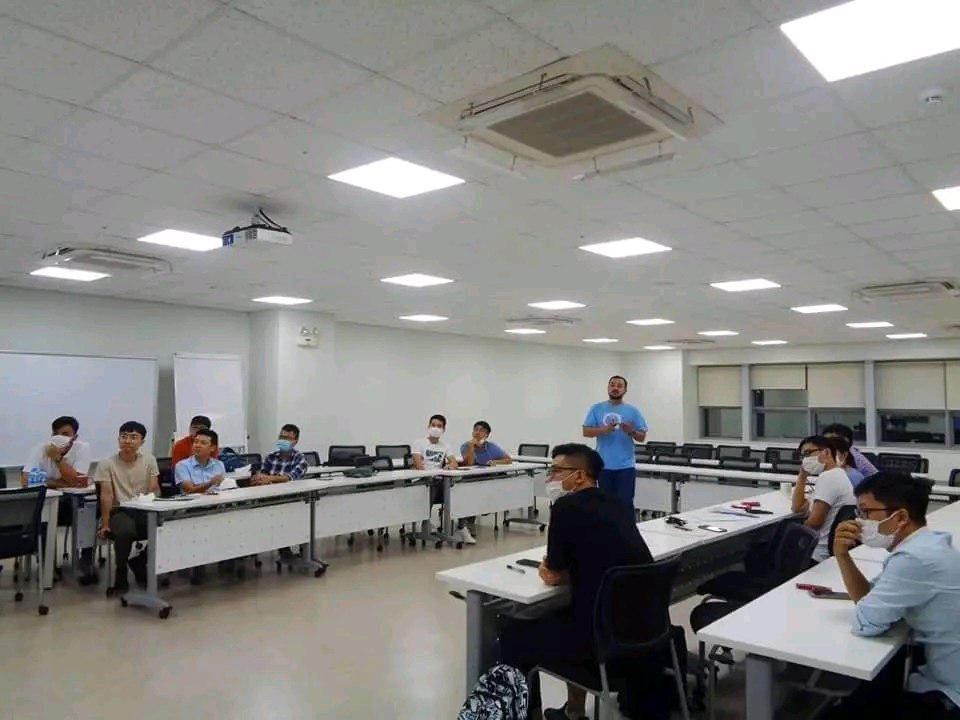
“Children have to study mathematics even if they don’t like it”
- I have worked in many Asian countries, they mainly focus on mathematics. Even in Vietnam, 70% of children hate math, but everyone should learn.
Recently, a video of a father forcing his child to study mathematics early in the morning went viral. The father himself is sitting looking at the phone. The boy goes out to the balcony to get fresh air and jumps. After this incident, they advocated not to teach mathematics by force.
Schools have their own uniforms. You can tell which school it is by looking at the uniform. Another interesting thing is that November 21 is Teacher’s Day in Vietnam. On that day, parents give the teacher money, not flowers or other gifts.
“Attracting foreign teachers to education is more developed”
- The emphasis on English is stronger in Vietnam than in other countries. A tourist who comes here will not suffer. Most of the population can speak English. Most of the common people also know English. Many tourists come here, and they buy something from ordinary residents. Therefore, they are forced to learn English for the purpose of livelihood.
A child takes English classes in kindergarten without learning Vietnamese. Children who grow up in an English-speaking environment become fluent in English after a few years. The country is now paying attention to this.
85-90% of young people can speak English. Vietnam has made progress in attracting foreign teachers to education. First, they work in universities, then high schools, elementary schools, and now in kindergartens. There are about 200 foreign teachers in the city where I live. Vietnam, which until recently had a poor quality of education, is being uplifted by foreign teachers.
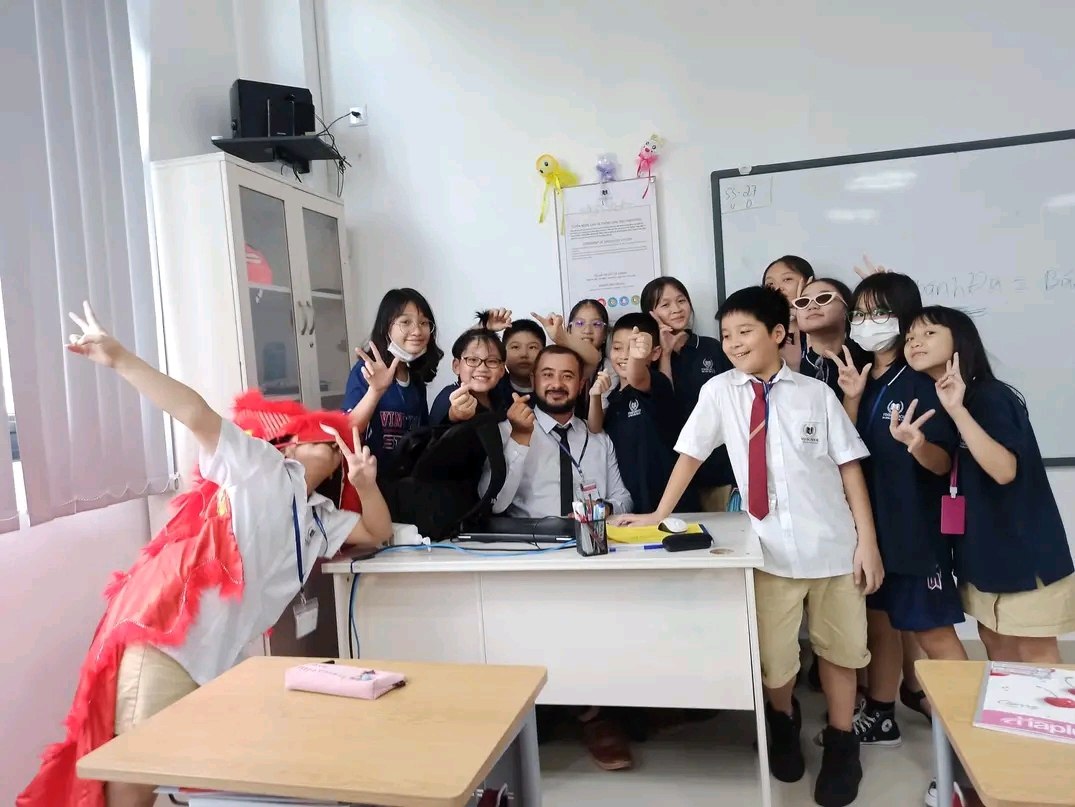
On corruption in Vietnamese education
- A teacher’s salary is determined depending on his experience, qualification, school. On average, they probably get $400-$500. Because I saw people earning $200 (newbies) and $700.
Monthly wage is $200-$250. Teachers try to be employed at the school for tutoring purposes, but not for its salary. In a large place like a gym, they teach 100-150 people. The salary of a teacher is not high, but the income from tutoring is good.
“It is not the teacher, but the camera that monitors the child during the lesson”
- Now Vietnam has progressed in mathematics and IT, now it’s time for improving English. There are cameras in the classrooms. The teacher is not even allowed to look at the phone to see a word translation. The camera is constantly monitored by 2 people. Before the child goes to class, he puts his phone in a box. A loudspeaker is installed in the classroom. If they see a child playing on the phone, they will say their full names and expel them out of the classroom. The teacher should teach the child, not observe him.
Parents investing heavily in education
- In fact, people are not very rich. But they spend a lot of money on their child’s education. Parents are strict with children. Child leaves the house at 7 in the morning, parents pick him up from school at 3, take him to an extra lesson, and when it’s over, he takes him to another training club. They are investing heavily in their child’s future.
The dream of most of them is to work somewhere abroad. They spend more money for their children. They might be dressed poorly, riding a motorcycle, but they allocate more money for the child’s schooling. Only primary school is free here, everything else is paid.
Respect for the teacher in society
- The status of teachers is very high in China, Thailand and Vietnam. Parents are in constant contact with teachers, and are very strict in the child’s upbringing and education. The education system is not perfect, but it is developing very quickly. Teachers are given many opportunities. The status of teachers and doctors is high in society. Wherever you go, you will be respected.
A child does not always want to study, but after receiving a good scolding from their parents who see the rating, they study so well. If the teacher says “I will call your mother”, he will be a good boy and start studying well.
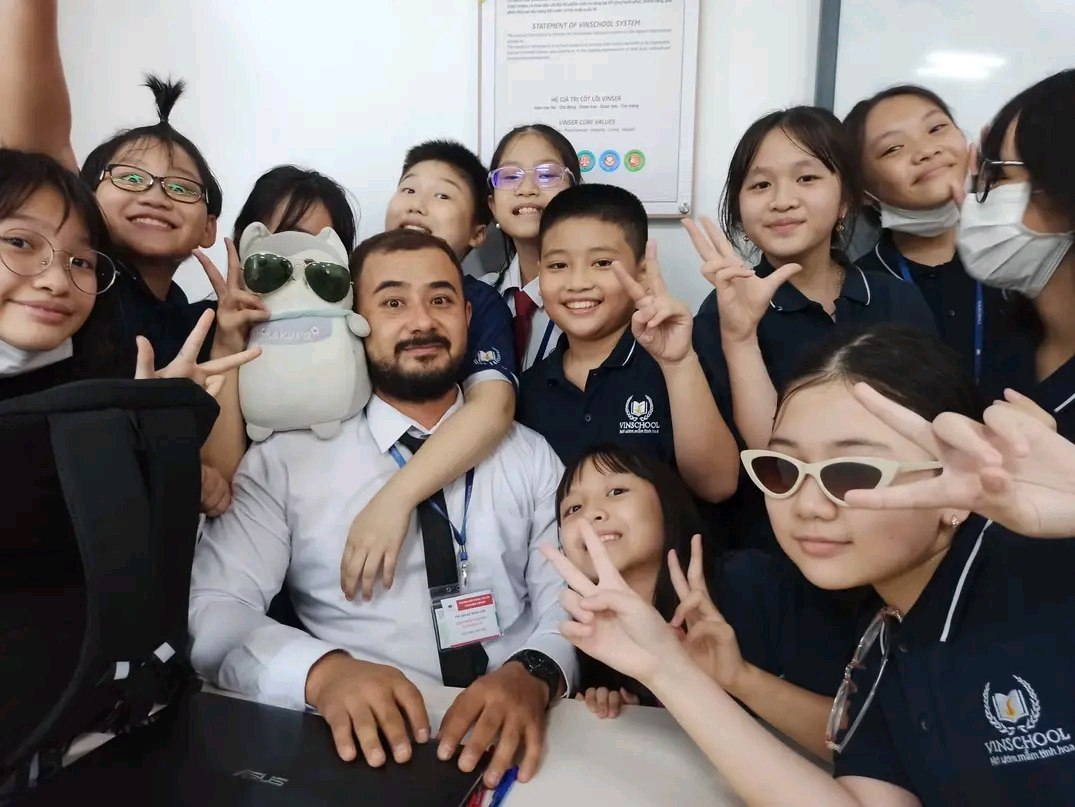
Vietnamese naptime
- There can be up to 50 children in a class (Vietnam’s population is about 100 million). This does not affect the quality, therefore, additional classes have been set up. Child lives in school!
At lunchtime, they sleep on desks or on the floor (they have beds for sleeping). In Vietnam, daytime sleep is an integral part of the nation. In compulsory educational institutions (grades 1–12) students almost live. In this place, where children spend most of the day, it is mandatory for them to take a nap in the midday.
This helps to improve their academic potential. I was surprised on my first day of work: the teachers went to sleep on the mattresses. In the teachers’ room!
Later I found out that the situation is the same in banks and government offices. You won’t see anyone on the street at 1pm in the afternoon. I don’t know adults, but a child needs enough sleep. A sleepy child’s brain cannot fully digest the subject.
About being recognized as “Teacher of the year”
- The “Teacher of the year” competition was only among foreign experts. The same choice is made among local teachers. One’s work does not go unnoticed. I was approved for this award because of 3 years of hard work and my results (many of my students have scored higher in IELTS and are continuing their studies at foreign universities).
There were also experienced American and English teachers there, which means that for me it was just a dream, I didn’t even think that it was possible. I tried to do all sorts of interactive lessons without sleeping at night so that there would be no such thing as “how do you teach English, you need a teacher yourself”. So, my hard work paid off. If I learn something new, I wish I could go to Uzbekistan and work on it with children.

What should Uzbekistan learn from Vietnam?
- What do we lack? All criticism is directed at the teacher and the school. Parents also have to work for result. Everyone blames the teacher. However, everyone should be responsible for education, not just the teacher.
In short, what we need to learn is respect for the teacher, for education. Criticism is good if it is appropriate. In our case, on the contrary, they unknowingly kill someone’s motivation.
Finally, the cooperation of teachers and parents is also important. Then only good results will emerge.
Related News

19:54 / 12.02.2026
Statistics Committee reports decline in overseas study trips

12:55 / 10.02.2026
Islamic Development Bank to fund $164m in infrastructure and education projects in Uzbekistan

14:45 / 09.02.2026
Healthcare and education top corruption statistics in Uzbekistan
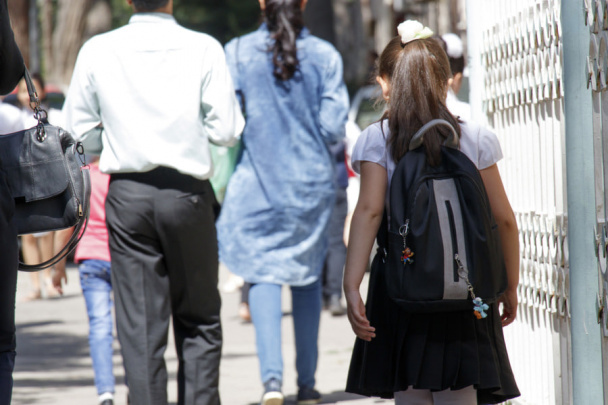
13:06 / 09.02.2026



